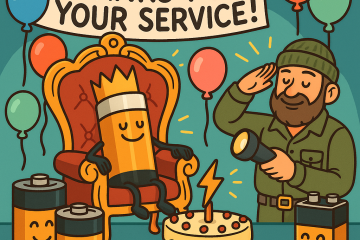
AI is a powerful tool when used properly
In the grand theater of technological advancement, Artificial Intelligence (AI) is the star that’s stealing the show. From chatbots that draft emails faster than you can say “Dear Sir or Madam” to algorithms predicting what’s for dinner, AI has become a trusty sidekick in our daily lives. But, like a double-edged sword, AI brings both convenience and caution. While its potential to make our lives easier is undeniable, the darker side—from job displacement to privacy risks—raises concerns for anyone striving to stay safe and self-reliant.
The Bright Side of AI: Making Life Easier and Safer
Let’s start with the good stuff. AI has proven to be a real game-changer, helping us stay ahead of life’s curveballs. In healthcare, AI-driven tools can spot diseases early, giving doctors a head start in treatment. Imagine having a tool that can detect a brewing storm or help navigate disasters by analyzing satellite images—AI is doing just that, assisting in emergency planning and response.
For self-reliant folks, AI can streamline everyday tasks. Virtual assistants like Alexa and Siri handle reminders, weather updates, and even grocery lists, leaving you more time for what truly matters—like perfecting that sourdough starter. AI in education offers tailored learning experiences, helping everyone from kids to lifelong learners gain practical skills at their own pace. And let’s not forget creative pursuits; AI can help you design a garden layout or even generate recipes based on what’s in your pantry. (But of course, this isn’t nearly as good as my cookbook, The Magnificent Pantry. Ha!
I use AI to help with the images that I use for these blog articles. Normally I would spend SO much time searching the internet for just the right photo and then I’d run into copyright rules. With AI I don’t have to worry about any of that. I also use AI to proofread spelling, grammar, and tone in all of my articles and talks. I also used AI to come up with a questionnaire for my clients. Grant it, I had to tweak a bit, but at least it gave me a good foundation rather than my staring at an empty screen for half an hour. I save several hours a week thanks to AI making what I do for Preparedness Pro possible.
The Darker Side: A Wake-Up Call for the Self-Reliant

AI can help with inventory of our pantry and the layout of our garden
But before we throw a parade for AI, let’s talk about the risks. Job automation is a glaring concern. As machines take over repetitive tasks, entire professions are being reshaped. While some jobs will evolve, the transition can leave people struggling to adapt—a challenge for anyone who values self-sufficiency.
Then there’s bias in AI systems. These tools learn from data, and if that data reflects existing prejudices, the results can be skewed. Imagine an AI making decisions about who gets a loan or a job interview—bias could creep in, affecting lives and livelihoods unfairly.
Privacy is another hot-button issue. Facial recognition technology may boost security, but it also raises questions about how much of our personal lives we’re willing to expose. And let’s not even get started on AI in weaponry—autonomous systems making life-and-death decisions sound more like science fiction than something we want in reality.
Keeping AI on the Right Path
So, how can we embrace AI’s benefits while steering clear of its pitfalls? Here are some practical tips for staying safe and self-reliant in an AI-driven world:
1. Stay Informed: Knowledge is power. Learn about how AI is being used and how it might impact your daily life. The more you know, the better equipped you’ll be to recognize both opportunities and risks.
2. Secure Your Data: Protect your digital footprint. Use strong passwords, enable two-factor authentication, and think twice before sharing personal information online. Treat your data like the valuable resource it is.
3. Verify and Question: If an AI tool or app seems too good to be true, it probably is. Always question the source and accuracy of AI-generated information, especially when making critical decisions.
4. Use Ethical Tools: Support companies and developers committed to transparency and fairness in AI. Tools that prioritize user privacy and explain their decision-making processes are worth seeking out.
5. Collaborate and Advocate: Join conversations about AI’s role in society. Whether it’s attending local workshops, engaging with online communities, or even advocating for ethical AI policies, your voice can make a difference.

AI can be intrusive if not kept in check
Striking a Balance
AI is like a trusty multi-tool: incredibly useful but requiring careful handling. By staying informed and vigilant, we can harness its benefits while avoiding its pitfalls. For those of us who value independence and resilience, AI can be a powerful ally in navigating life’s challenges—if we use it wisely.
So, let’s welcome this new technology with open eyes and a healthy dose of skepticism. After all, self-reliance isn’t about avoiding tools; it’s about mastering them. Whether AI helps you grow a better garden, streamline your budget, or prepare for the unexpected, the key is making it work for you, not the other way around.


